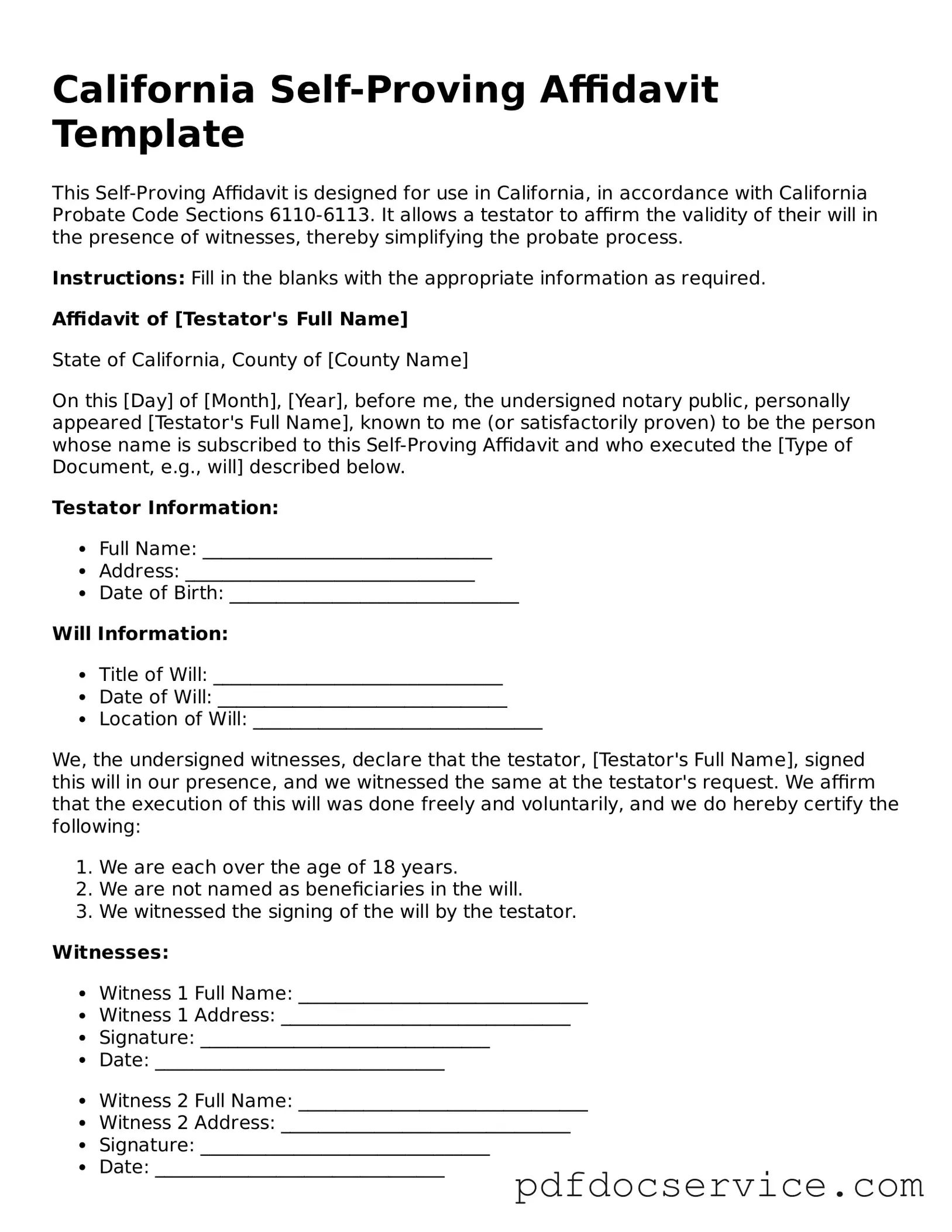What is a California Self-Proving Affidavit?
A California Self-Proving Affidavit is a legal document that allows a will to be validated without the need for witnesses to testify in court. This affidavit is typically signed by the testator (the person who made the will) and witnesses, affirming that they witnessed the signing of the will. It simplifies the probate process by providing evidence of the will's authenticity.
Why should I use a Self-Proving Affidavit?
Using a Self-Proving Affidavit can save time and reduce complications during the probate process. By having this document, you eliminate the need for witnesses to appear in court, which can be especially helpful if witnesses are unavailable or have passed away. It provides a straightforward way to establish the validity of your will.
Who can sign a Self-Proving Affidavit?
The Self-Proving Affidavit must be signed by the testator and at least two witnesses. All parties involved should be of legal age (18 years or older) and mentally competent when signing the document. It is crucial that the witnesses are not beneficiaries of the will to avoid any potential conflicts of interest.
How do I complete a Self-Proving Affidavit?
To complete a Self-Proving Affidavit, follow these steps:
-
Ensure that the will is properly executed and signed by the testator and witnesses.
-
Fill out the Self-Proving Affidavit form, including the names and addresses of the testator and witnesses.
-
All parties must sign the affidavit in the presence of a notary public.
-
Keep the completed affidavit with the original will for easy access during probate.
Is a Self-Proving Affidavit required in California?
No, a Self-Proving Affidavit is not legally required in California. However, it is highly recommended as it streamlines the probate process and helps avoid potential disputes regarding the validity of the will.
Can I create a Self-Proving Affidavit for an existing will?
Yes, you can create a Self-Proving Affidavit for an existing will. However, it is essential to ensure that the will was properly executed according to California law. The affidavit must be signed by the testator and witnesses, and it should be notarized to be effective.
What happens if I don’t have a Self-Proving Affidavit?
If you do not have a Self-Proving Affidavit, the probate court may require witnesses to testify about the validity of the will. This can lead to delays in the probate process and may complicate matters if witnesses are unavailable. It can also increase the likelihood of disputes among heirs or beneficiaries.
You can find a Self-Proving Affidavit form through various online legal resources, local law libraries, or by consulting with an attorney. Many websites offer free templates that you can customize to meet your needs. Ensure that any form you use complies with California law.

